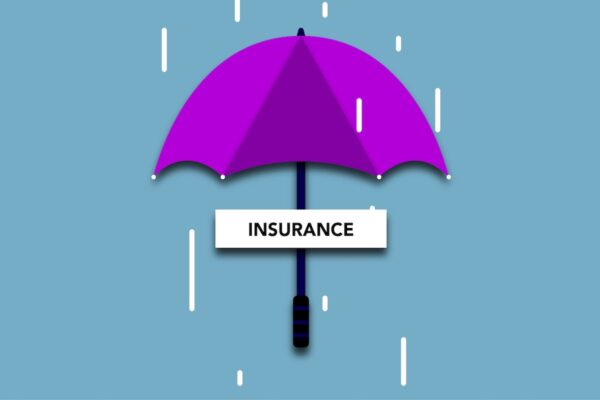NordVPN | Protect Your Privacy and Keep Your Data Private

With the value of data increasing all the time (and the rise of online snooping), many people are investigating whether they should buy NordVPN, a popular virtual private network provider.
But what precisely is a VPN? And should you use NordVPN to keep your data private? Let’s take a look.
What is a VPN?
VPN stands for “virtual private network.” It’s a system that enables you to scramble the data going to and from your computer via a series of servers, making it impossible for anyone to trace the original source. Thus, VPNs offer an additional layer of security and anonymity while browsing online, over and above other encryption protocols, such as HTTPS and SSL. With a VPN, not even your internet service provider can see your browsing history or any data from your computer. You’re as close to being secure as current technology allows.
Why would someone want to use a VPN?
There are many reasons for using VPNs.
The top reason most people cite is the increased security that they offer. Cybercriminals find it relatively straightforward to track individuals using regular internet setups. But with a VPN in place, it’s far more complicated. VPN scramble all of the data coming and going to a machine, and effectively hide the source. While criminals can usually follow you to a specific IP address, VPNs make that impossible. You become invisible.

RELATED: Would you give up your privacy for a cookie?
The next most popular reason is to access restricted content. Governments all over the world are clamping down on who can access what online, often against the wish of citizens. Many people believe that this isn’t right, and so skirt around governmental restrictions to access content available in other countries. VPNs in Europe, for instance, allows European citizens to circumvent the GDPR rules that block some external websites.
VPNs are also incredibly popular for those who want privacy online. Governments and companies use mass surveillance techniques to monitor internet traffic all over the world. Snooping is rampant. Many individuals don’t want that, and so set up VPNs to ensure that nobody, not even government departments, can see what they’re doing.
What does a VPN protect you against?
Data from Gemalto suggest that there were more than 4.5 billion data breaches in the first half of 2018 alone. That means that, in principle, an enormous amount of people had their online privacy violated.
2018 wasn’t an aberration either. Data suggest that breaches continue to grow, and 2019 and 2020 look like they’re going to be just as bad.
It all highlights the desperate need for people to use VPNs to protect their data if nothing else.
VPNs protect against a variety of threats that people face online.
- First, they can help defend against “sniffers” – programs that attempt to decode encrypted messages sent from a computer to a server and back again.
- Second, they make it impossible for hackers to find out your IP. All the information you filter to and from your computer goes through a private network of other computers first.
- Third, they help you download from torrents safely, hiding things like your ISP, the city you’re from, and the country in which you live.
- Fourth, it lets you avoid the ramifications of violating government censorship. With a VPN, you’re able to bypass unethical government controls.
- Fifth, VPNs allow you to get around annoying bandwidth throttling that some ISPs impose on their users.
NordVPN: Features and Plan Pricing
Okay, VPNs sound like a good idea: but how much do they cost? Here are the basics you need to know for NordVPN (one of the most popular services in the world):
Monthly Plan.
If you don’t know whether you want to put down a large sum of money for a VPN service, NordVPN offers a rolling monthly plan. It costs more overall, but it’s a good way of finding out whether a virtual private network service is for you.
The cost for this plan is $11.95 per month, without any discounts.
Yearly Plan
Next up is the yearly plan. Here you pay an effective $6.99 per month (and get billed once per year for the full amount).
Two-Year Plan
NordVPN offers a two-year plan at a monthly rate of $4.99.
Three-Year Plan
For those who think they’ll need a secure VPN for a long time to come, there’s a three-year plan, payable upfront, which works out to $3.49 per month.
NordVPN is a cloud-based VPN tool, so it enables you to protect up to six devices at once. You can use it to protect your computers (Windows, Mac, Linux), phones, and tablets (iOS, Android).
NordVPN offers a range of features that you might not get with other services. Perhaps the most important is that it doesn’t limit your file-sharing activities. The company offers hundreds of servers, all optimized for P2P activity.
The service also comes with something that the company calls CyberSec, a feature that automatically blocks anything that looks like it could be malware. There is a 24/7 helpline available to all customers and the ability to choose your originating country (not necessarily the one you inhabit right now).

How to get started with NordVPN
Getting started with NordVPN is remarkably straightforward.
All you need to do is go to the company’s website and select the plan that’s right for you. For most people, this will be the 1-year plan.
The next step is to create an account. This part of the process is vital: it’s how NordVPN knows that you’re a unique user, no matter which device you want to use to access the internet securely.
After that, all you need to do is select a payment method and pay NordVPN upfront for your membership. The company accepts pretty much all forms of payment, including credit cards, direct debit, UnionPay, Alipay, Cryptocurrencies, and Amazon Pay.
Once you’ve bought an account, NordVPN will send you an email and access information, showing you how to hook your devices up to their services and browse the internet in perfect privacy.
RELATED: Is Duckduckgo Safe? Why Switch To This New Search Engine








